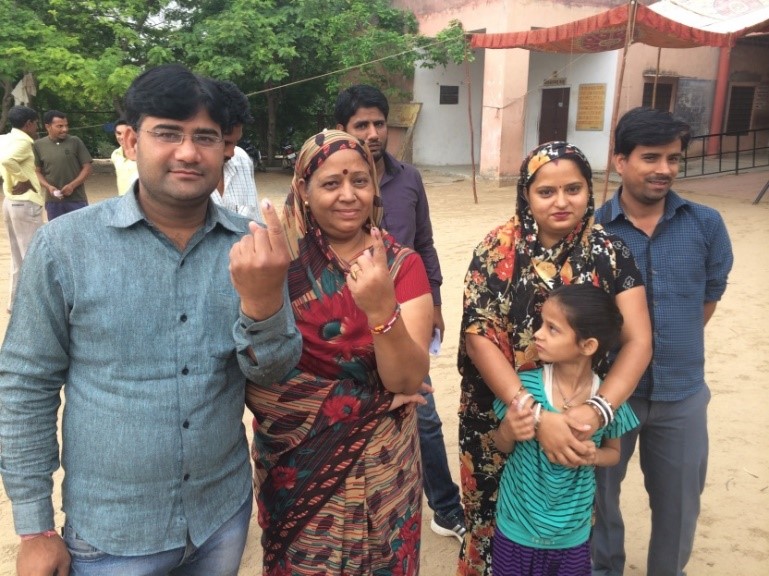
Welcome to Washington, Prime Minister Modi.
Today Indian Prime Minister Narendra Modi addresses a joint session of Congress. This speech, the fifth by a sitting Indian Prime Minister, highlights the durable bond shared between the world’s two largest democracies. On this occasion, I would like to reflect on the significance of India’s democratic institutions, and their impact on India’s neighbors across the Asian continent.
On the surface, India does not have the ideal composition of a functioning multi-party democracy. Achieving a democratic consensus can be particularly challenging for nations with large, diverse and resource-constrained populations. India, meanwhile, is the world’s second largest population (1.2 billion people), has more than 2,000 ethnic groups, and has an annual GDP per capita of roughly $1,500 (compared to approximately $53,000 in the United States).
Two years ago, I led a study tour of Asian political science professors, civic activists and journalists from developing Asian nations to observe India’s Lok Sobha (parliamentary) election. The project was designed for the study tour participants to bring lessons back to their home countries to push for more transparent and democratic electoral systems.
The Indian election was an historic event; it was history’s largest ever election – with more than 500 million citizens out of roughly 814 million eligible voters casting ballots. Voter turnout was 66 percent, the highest ever in an Indian general election. To put the size of this election into perspective, about one out of every 14 people on planet Earth physically cast a ballot. The monumental scale of logistical preparations matched with the ease of voting was a marvel for the study tour participants.
The study tour also highlighted India’s vociferously independent election commission. Indian candidates told the participants how even in a polarized political culture, all sides respected the will of the election commission. India’s electoral system is also a model of inclusivity. Participants observed all Indians, regardless of ethnicity, race or caste, exercise an equal right to vote
Certainly India’s political system has its share of challenges. But in a region where repressive authoritarian regimes are all too common, India serves as a powerful reminder that democracy can take root irrespective of population size, ethnic makeup, or per capital GDP. In other words, there are no excuses for resisting democratic reforms. Prime Minister Modi’s speech before the U.S. Congress is certainly a milestone in the U.S.-Indian bilateral relationship, but is more important as an inspiration for democracy activists across Asia that electoral democracy in their nation is achievable.
Top